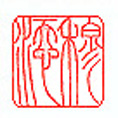— go back
— go back to list of extracts
— skip to next extract

‘Well, never anything physical. But he always spoke his mind without fear or favour, even when he was a landowner, and sometimes people felt bruised by what he said.’
‘And how can there be a wound inflicted with love?’
My interlocutor smiled, then frowned, and reflected. ‘Once there was a neglected vineyard near one of his. This was not good for his own plantation, because weeds spread easily, but the owner had other more profitable fields. He said to the man, in my hearing: “If you have a property, you should tend it. This would give you more satisfaction. If you cannot tend it, or do not wish to, perhaps you could think of giving it, or lending it, to an unlanded person.’ There was no malice or self-interest in this comment; but the other man was very annoyed by it.’
‘You said that he was once a landowner ...’ ‘Yes, he had several vineyards up the hill in the gulley, which he looked after to perfection, and which gave him and his family a good living, though bad years caused problems. ‘So what happened?’ I pulled our seats back from the advancing sun, and ordered more wine, trying to put Samson at his ease.‘It was the Philippidæ, you know, the old family with large estates, related to the former aristocratic rulers of Samos. The fields of Ctesias lay in the gulley between their much more extensive ones. The fields in the gulley are not favoured, because the land is rocky and usually less fertile. Also it is liable to flooding in certain seasons. There were two very bad seasons about ten years ago, one after the other, and Ctesias took a loan against the security of his fields, to tide him over. But the Philippid? bought up the loan, and forced him out, taking his fields into their estates. Since then, he has been, as you put it, an odd-job man, but widely loved and respected.’
(5/7)